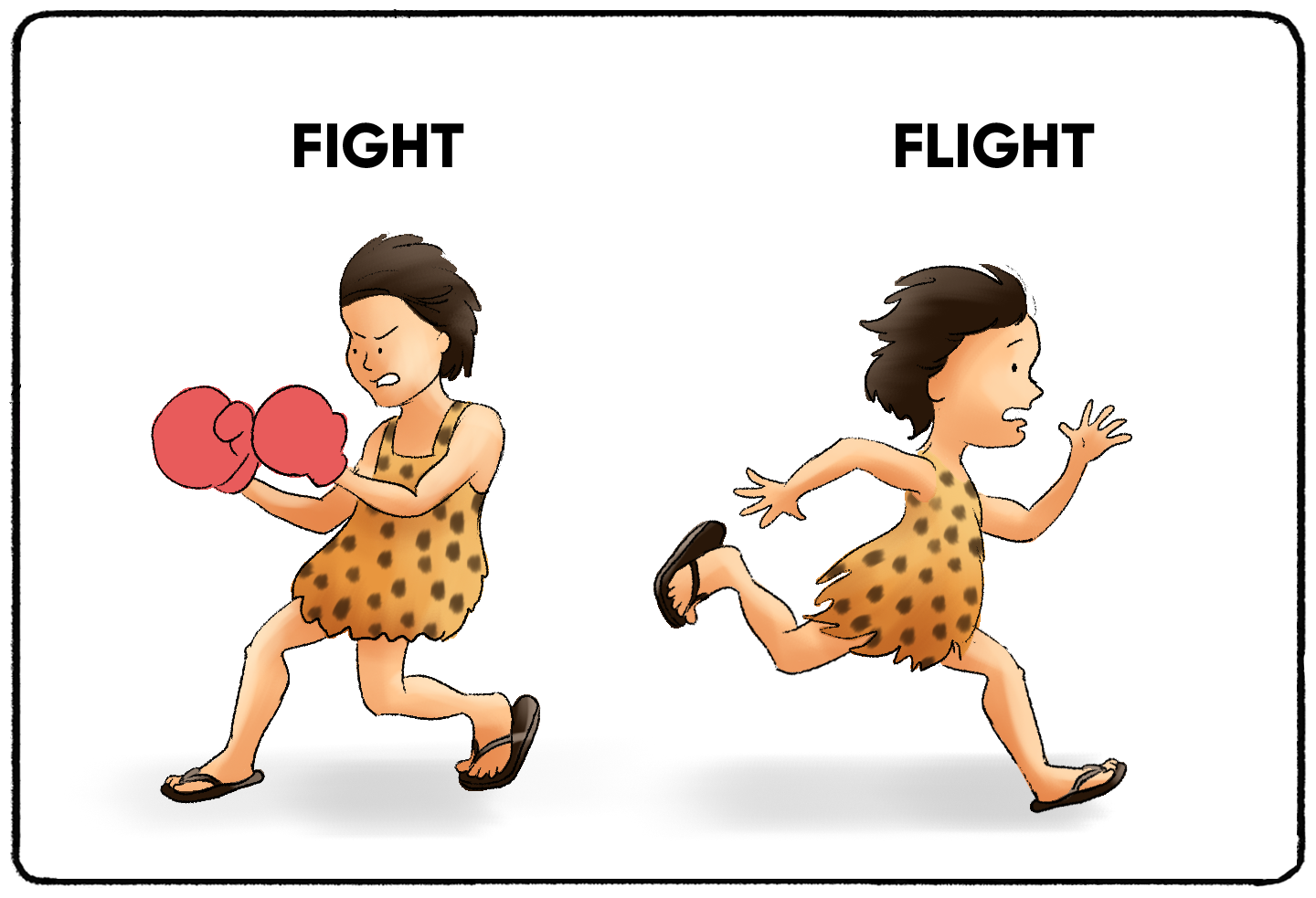- Empty cart.
- Continue Shopping
The Role of Adrenaline in Fight-or-Flight Response

Imagine you’re walking alone in a dimly lit alley and suddenly hear footsteps behind you. Your heart rate spikes, your muscles tense up, and you’re ready to either confront the situation or flee. This instinctual reaction is known as the “fight-or-flight” response, and adrenaline plays a crucial role in activating it. In this blog post, we’ll delve into the science behind adrenaline and its role in the fight-or-flight response, shedding light on how this hormone prepares your body for immediate action.
What is Adrenaline?
Adrenaline, also known as epinephrine, is a hormone and neurotransmitter produced by the adrenal glands. It’s often referred to as the “stress hormone” because it’s released in response to stressors, whether they’re physical or psychological. When you encounter a situation that requires quick action, adrenaline floods your system to prepare you for what’s to come.
The release of adrenaline triggers a cascade of physiological changes. Your heart rate increases to pump more blood to your muscles, your airways expand to allow for better oxygen intake, and your senses become heightened. These changes are part of your body’s natural survival mechanism, designed to optimize your ability to either confront or escape danger.
The Science Behind the Fight-or-Flight Response
The fight-or-flight response is a biological reaction that has evolved over millions of years. It’s controlled by the autonomic nervous system, specifically the sympathetic branch. When your brain perceives a threat, it sends signals to the adrenal glands to release adrenaline and other hormones like cortisol. This hormonal surge is what kickstarts the fight-or-flight response.
Within seconds, adrenaline acts on various organs and systems in the body. It dilates the pupils for better vision, diverts energy to essential muscles by increasing glucose levels, and even suppresses non-essential functions like digestion. All these changes happen almost instantaneously, equipping you with the physical capabilities to deal with the threat at hand.
Adrenaline and Decision Making
You might wonder how adrenaline affects your ability to make decisions in high-stakes situations. Interestingly, adrenaline doesn’t just prepare your body for action; it also sharpens your mental focus. When adrenaline levels rise, you’re more likely to zero in on the immediate threat and filter out irrelevant information. This heightened awareness can be crucial for making split-second decisions that could be life-saving.
However, it’s worth noting that too much adrenaline can have the opposite effect. Excessive levels can lead to anxiety, impaired judgment, and even panic attacks. Therefore, while adrenaline boosts your decision-making abilities to some extent, an overload can be counterproductive.
The Downside of Chronic Adrenaline Release
While the fight-or-flight response is beneficial in acute, short-term situations, chronic activation can be harmful. Constant exposure to stressors can lead to the continuous release of adrenaline, which may result in health issues like high blood pressure, heart disease, and anxiety disorders. It’s essential to manage stress effectively to prevent the adverse effects of prolonged adrenaline release.
Moreover, chronic stress can lead to “adrenaline fatigue,” where the adrenal glands become less effective at producing adrenaline. This can result in a range of symptoms, including fatigue, body aches, and difficulty in coping with stress. Therefore, it’s crucial to find a balance and not let stress become a constant in your life.
In conclusion, Adrenaline is a fascinating hormone that plays a pivotal role in the fight-or-flight response. It prepares both your body and mind for immediate action, enhancing your ability to deal with threats effectively. However, it’s a double-edged sword. While beneficial in short bursts, chronic exposure can lead to various health issues. Understanding the role of adrenaline can not only help you appreciate how your body responds to stress but also underscore the importance of managing stress for long-term health.
By delving into the science behind adrenaline and its effects, we can better understand our natural reactions to stress and danger. This knowledge can be empowering, helping us navigate the challenges that life inevitably throws our way.








